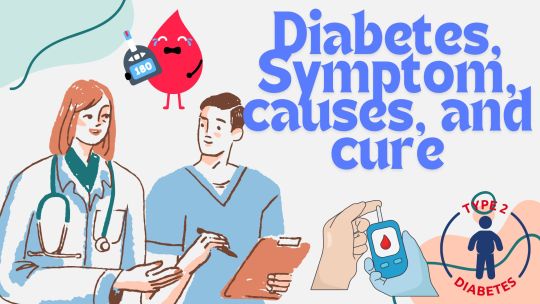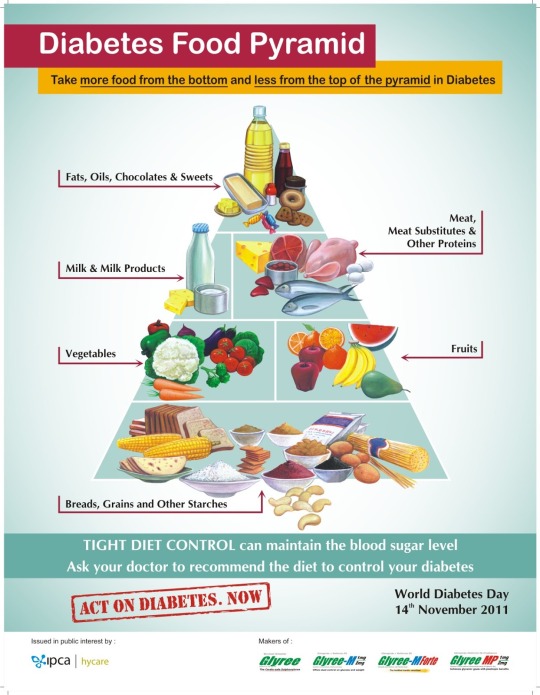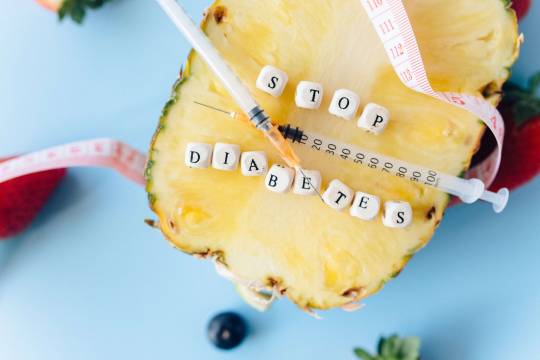#type 2 diabetes cure
Text

Reversirol Supplement Review - Tailored for Type 2 Diabetics, Pre-Diabetics, and Weight Loss Enthusiasts
#reversirol reviews#reversirol supplement review#reversirol pills reviews#diabetes reversal#type 2 diabetes#reversing diabetes#reverse diabetes#reversing diabetes keto#treatment for diabetes#reversing type 2 diabetes#best diet for diabetes#type 2 diabetes cure#how to reverse diabetes#how to reverse diabetes naturally#reverse diabetes naturally#how to cure diabetes naturally#how to reverse diabetes permanently#diabetes treatment#diabetes management program#how to control diabetes#diabetes nutrients#diabetes and supplements#insulin resistance
0 notes
Text

If you have "Type 1 Diabetes" and want to live a long life then hurry up and click the link below
www.diabaplus.com
www.deemark.com
#type 2 diabetes symptoms in women#type 2 diabetes medication#type 2 diabetes test#type 2 diabetes insulin#diabetesmanagement#cure diabetes#type 1 diabetes#type 1 diabetes treatment#ayurvedicdiabetesedicine
3 notes
·
View notes
Text
Reversing Type 2 Diabetes

Against popular belief, type 2 diabetes is not a lifelong disease. It is actually very easy to prevent, and also very easy to reverse type 2 diabetes. We have crafted an article that will give you in depth understanding of what type 2 diabetes is,and the symptoms. More importantly we show the scientifically proven methods to actually reverse diabetes. Type 2 diabetes is not a lifelong condition. With the right lifestyle choices , you can prevent, manage, and even reverse type 2 diabetes. With this knowledge, you can take control of your health and live a life free from the burden of type 2 diabetes. There is a better way that drug companies do not want you to know. Evidence proves that a plant based diet can effectively manage and even reverse Type 2 diabetes. The benefits of curing your type 2 diabetes are immense. Not only can you enjoy a life without medication, but you can also avoid the long-term complications that can come with the disease, such as heart disease, kidney damage, and blindness. Additionally, you can save a significant amount of money by eliminating the need for expensive medications and doctor visits.
Read our full article at Pernillas HealthyLiving
2 notes
·
View notes
Text
How to control diabetes without medicine
What is diabetes?
Diabetes is an illness, caused due to obesity and an inactive lifestyle. It occurs when a person's glucose bloodline is too high. There are two types of diabetes, type 1, which is caused by insulin cells not provided with enough blood and type 2 which is where the insulin cells are destroyed due to high blood pressure. Over time having too much glucose can ruin your health and as a result, you can become diabetic. 90-95 percent of diabetes because of this cause. Having too much sugar in your blood is a common reason people are getting diabetes. Diabetes can also be caused by stress. Hormones from stress can increase the pressure of your blood and the rate of your heartbeat.
How to control diabetes
Keeping your blood sugar levels within the range recommended by your doctor can be hard to keep on track. That's because a lot of things make your blood sugar levels switch, sometimes unexpectedly. Following are some factors that can change or harm your blood sugar levels.
Food
Healthy eating is an important rule of healthy living, whether you are diabetic or not. But if you are diabetic, you need to know how foods affect your blood sugar levels. It's not only the type of food you eat but also the amount of how much you eat and the different kinds of food types you eat.
What to do:
Learn about carbohydrate counting and portion sizes. A key to many diabetes management plans is managing to count carbohydrates. Carbohydrates often have the largest change in blood sugar levels. For people taking insulin at mealtime, it's important to know the number of carbohydrates in your food, so you get the perfect dose of insulin.
Learn what portion size is needed for each type of food. Simplify your meal planning by noting down portion sizes for foods you eat quite often. Use measuring cups or a scale to ensure proper portion size and an accurate carbohydrate count.
Make every meal well-balanced. As much as possible, plan for every meal to have a good mix of fruits and vegetables, proteins, and fats. Pay attention to the different types of carbohydrates you choose.
Some carbohydrates, such as fruits, vegetables, and whole grains, are more essential for you than others. These foods are low in carbohydrates and have fiber that assists keep your blood sugar levels more balanced.
Talk to your doctor, nurse, or dietitian about the best food choices and the correct balance of every food type.
Coordinate your meals and medications. Non-efficient food in proportion to your diabetes medications — especially insulin — may end in a dangerous result of low blood sugar (hypoglycemia). Too much food may cause your blood sugar level to rise too high (hyperglycemia). Talk to your diabetes health care team about how to best control meal and medicine schedules.
Avoid sugar-sweetened beverages. Sugar-sweetened beverages tend to be high in calories and don't offer much nutrition. And because they cause blood sugar to rise very rapidly, it's best to avoid these types of drinks if you have symptoms of diabetes.
The exception is if you have a low blood sugar level. Sugar-sweetened beverages, such as soda, juice, and sports drinks can be used as an effective treatment for quickly making blood sugar that is too rise.
Diabetes in different age groups
In the last three decades, there has been a dramatic increase in type 2 diabetes between the ages of 40-50 years old. In addition to obesity, age is a large risk factor for type 2 diabetes and the burden of the disease is very high for middle-aged adults. In 2011 in the USA 20 percent of people with diabetes aged 60 and older had their diabetic symptoms become eight times worse. Nevertheless, diabetes is also rising amongst young children nowadays. Commonly, adults will be diabetic between the ages of 45-64 years old. A person can rarely be diabetic if they are not between those ages; however, it is still possible that someone out of the age limit can get diabetes if they do not keep themselves in a healthy lifestyle. If someone under the age limit receives diabetes, they must become more energetic and make their lifestyle more active. Between January 1st, 2011, and December 31st, 2016 diabetes cases were recorded and there was a result over 93,781 patients were diagnosed. Around 75 percent of the people diagnosed were between the ages of 40 and 60, the remaining 20 percent were living a very obese and lazy lifestyle, if they are diagnosed at this age, they may receive many other Illnesses and problems throughout their life until they fix their choices and find a better lifestyle to live in.
How to control diabetes without medicine
Regular exercise is an essential way to control diabetes without prescriptions, this should help to moderate your weight and pump the insulin back into your blood again. Increased insulin means your body can take more sugar into the bloodstream and reduce your diabetic effects. If you have blood sugar management, you should ask for an exercise routine from your doctor so that you know what exercises will be good for you and which could potentially harm you even more. Doctors also recommend doing exercise snacks, which are small periods throughout the day where you do exercise for a short amount of time and repeat it later on in the day. 30 minutes for each exercise snack time should be enough for a day, you can repeat this 3 or 4 times a day. During these periods doing squats and leg raises are appropriate for this. Weightlifting is also a great way to control your blood pressure, build muscles have a high glucose pressure, help your insulin cages rebuild and your blood keep flowing. These activities are also good for your health: Running. Walking, Hiking, Dancing. They all can keep your health in the right place if you do enough of them but not extra, you could pull muscles or even destroy more of your insulin cells.
How to control diabetes with medicine
Although it is possible to control diabetes without medicine, it can be hard to take part in those activities especially if you are above 60, medicine is another way to control diabetes. It is not a natural way to heal yourself however medicine can have different effects that can heal you quicker than other ways.
Metformin is most likely the first prescription you will receive from your doctor if you have type 2, it is seen as the best medicine to keep your blood pressure stable. It works primarily by lowering glucose production in the liver and improves your body's sensitivity to the effects of insulin.
#diabetes#diabetes care devices market#diabetes cure#diabetes food#type 2 diabetes#diabetic#diabetes nursing#diabetes podiatrist brisbane#protein#diseases#inflammation#exercices#exercise#health#health and wellness#supplements#nutrition#healthy life#health tips#food#healthy food#foodpics#medicine#health care#vaccines#type 1 diabetes#type 1 diabetic#treatment#patient#insulin
2 notes
·
View notes
Text
What is diabetes, Symptom, causes, and cure?

I. Introduction
A. Definition of Diabetes
B. Significance of Understanding its Causes and Cure
II. Types of Diabetes
A. Type 1 Diabetes
1. Autoimmune Process
2. Insulin Dependency
B. Type 2 Diabetes
1. Insulin Resistance
2. Lifestyle Factors
III. Genetic Factors
A. Familial Predisposition
B. Genetic Mutations
IV. Environmental Influences
A. Diet
B. Sedentary Lifestyle
C. Stress
V. Hormonal Factors
A. Insulin Production
B. Glucagon Regulation
VI. Immunological Factors
A. Autoimmune Response
B. Inflammatory Processes
VII. Cellular Dysfunction
A. Mitochondrial Dysfunction
B. Oxidative Stress
VIII. Microbiome and Gut Health
A. Gut Microflora Composition
B. Gut-Brain Axis
IX. Metabolic Syndrome
A. Insulin Resistance
B. Dyslipidemia
X. Pharmacological Treatments
A. Insulin Therapy
B. Oral Hypoglycemic Agents
XI. Lifestyle Interventions
A. Diet Modification
B. Exercise Regimens
XII. Stem Cell Therapy
A. Regenerative Potential
B. Clinical Applications
XIII. Immunotherapy
A. Targeting Autoimmune Response
B. Immune Modulation
XIV. Gene Therapy
A. CRISPR Technology
B. Genetic Engineering
XV. Conclusion
A. Holistic Approach to Diabetes Management
B. Future Directions in Research and Treatment
Diabetes, Causes, Cure
Introduction
Diabetes, a chronic metabolic disorder, affects millions worldwide. Understanding its causes and potential cures is paramount in addressing its increasing prevalence and the associated health complications.
Types of Diabetes
Type 1 Diabetes
Type 1 diabetes results from an autoimmune process where the body's immune system mistakenly attacks insulin-producing beta cells in the pancreas. This leads to insulin deficiency and dependence on external insulin sources for survival.
Type 2 Diabetes
Type 2 diabetes primarily stems from insulin resistance, where cells fail to respond effectively to insulin. Lifestyle factors such as obesity, physical inactivity, and poor dietary choices contribute significantly to its development.
Genetic Factors
Familial Predisposition
A family history of diabetes increases the risk of developing the condition due to shared genetic factors among relatives.
Genetic Mutations
Specific genetic mutations can predispose individuals to diabetes by affecting insulin production, glucose metabolism, or other related processes.
Environmental Influences
Diet

A diet high in refined sugars, saturated fats, and processed foods can contribute to insulin resistance and metabolic dysfunction, increasing the risk of diabetes.
Sedentary Lifestyle
Physical inactivity disrupts glucose metabolism and insulin sensitivity, promoting the onset and progression of diabetes.
Stress
Chronic stress triggers hormonal imbalances and inflammation, adversely affecting insulin function and contributing to diabetes development.
Hormonal Factors
Insulin Production
Disruption in insulin production by pancreatic beta cells or inadequate insulin secretion in response to glucose levels contributes to diabetes pathogenesis.
Glucagon Regulation
Imbalances in glucagon, a hormone that opposes insulin's actions, can disrupt blood glucose control and contribute to diabetes progression.
Immunological Factors
Autoimmune Response
In type 1 diabetes, an autoimmune reaction against beta cells destroys insulin-producing cells, leading to insulin deficiency and dependence on exogenous insulin.
Inflammatory Processes
Chronic inflammation plays a role in insulin resistance and beta cell dysfunction, contributing to the development and progression of diabetes.
Cellular Dysfunction
Mitochondrial Dysfunction
Impaired mitochondrial function within cells can disrupt energy metabolism and insulin signaling pathways, contributing to insulin resistance and diabetes.
Oxidative Stress
Increased oxidative stress damages cells and tissues, impairing insulin sensitivity and exacerbating diabetes-related complications.
Microbiome and Gut Health
Gut Microflora Composition
Alterations in gut microbiota composition can influence glucose metabolism and inflammation, impacting diabetes risk and progression.
Gut-Brain Axis
The bidirectional communication between the gut and the brain influences metabolic processes, including glucose regulation, and may play a role in diabetes development.
Metabolic Syndrome
Insulin Resistance
Insulin resistance is a hallmark of metabolic syndrome, characterized by impaired insulin action in target tissues, contributing to diabetes and cardiovascular disease risk.
Dyslipidemia
Abnormal lipid metabolism, including elevated triglycerides and decreased HDL cholesterol, is common in metabolic syndrome and exacerbates diabetes complications.
Pharmacological Treatments
Insulin Therapy
Insulin replacement therapy is essential for managing type 1 diabetes and may be necessary for type 2 diabetes patients with advanced disease or beta cell failure.
Oral Hypoglycemic Agents
Various oral medications target different aspects of glucose metabolism, including enhancing insulin sensitivity, stimulating insulin secretion, or inhibiting glucose production in the liver.
Lifestyle Interventions
Diet Modification
Adopting a balanced diet rich in whole grains, fruits, vegetables, and lean proteins can improve blood glucose control and reduce diabetes risk.
Exercise Regimens

Regular physical activity improves insulin sensitivity, promotes weight loss, and helps control blood sugar levels, making it a cornerstone of diabetes management.
Stem Cell Therapy
Regenerative Potential
Stem cell-based therapies hold promise for regenerating pancreatic beta cells and restoring normal insulin production in diabetes patients.
Clinical Applications
Ongoing research explores the use of stem cells in diabetes treatment, including transplantation approaches and cell-based therapies to replace damaged or dysfunctional cells.
Immunotherapy
Targeting Autoimmune Response
Immunotherapy aims to modulate the immune system to halt the autoimmune destruction of pancreatic beta cells in type 1 diabetes.
Immune Modulation
Various immunomodulatory strategies, such as antigen-specific tolerance induction and regulatory T cell therapy, show potential for preserving beta cell function and delaying disease progression.
Gene Therapy

CRISPR Technology
Advancements in gene editing technologies like CRISPR offer the possibility of correcting genetic mutations associated with diabetes and restoring normal cellular function.
Genetic Engineering
Gene therapy approaches aim to deliver functional genes or modify existing ones to enhance insulin production, improve glucose metabolism, and potentially cure diabetes.
Click here
Conclusion
A comprehensive understanding of the multifaceted causes of diabetes and the development of innovative treatments offer hope for effectively managing and ultimately curing this pervasive disease. Embracing a holistic approach that addresses genetic, environmental, hormonal, immunological, and metabolic factors is essential for improving diabetes outcomes and enhancing the quality of life for affected individuals. As research continues to uncover new insights and therapeutic strategies, the pursuit of a cure for diabetes remains a top priority, guiding the future of healthcare and ushering in a new era of personalized medicine.
Click here to get link
DISCLAIMER :- This article contains affiliate link, which may beneficial for me.
#health & fitness#diabetes#healthcare#insulin#type 2 diabetes#sugarcontrol#diabetes care#diabetes causes#diabetes products#diabetes symptoms#diabetes treatment#diabetes control#diabetes medicine#diabetes cure
0 notes
Video
youtube
Grandma's Bizarre 14-Day Diabetes Reversal Formula is Saving Lives and Leaving Doctors Speechless! After Being Diagnosed With Severe Diabetes, This 82-Year-Old Stumbled Upon a Weirdly Effective Natural Remedy That Reversed Her Condition in Just 2 Weeks. Click Here to Learn Her Secret!Here is the link 🤩🤩==>> https://bit.ly/49VQSnf
#diabetes#how to reverse diabetes#type 2 diabetes#diabetes cure#natural treatment for diabetes#high blood sugar#how to lower blood sugar levels
0 notes
Text

Top 10 Yoga Asanas for Managing Diabetes
A process that includes diet, exercise, and stress management to bring about a behavioral transformation that can help diabetics reverse their condition and sustain it. And one of the most powerful tools in this process is Yoga.
Here are top 10 yogasana for diabetics: https://www.freedomfromdiabetes.org/blog/post/top-10-yoga-asanas-for-managing-diabetes/2611
#yoga for diabetes#yoga asanas for diabetes#yoga for diabetes type 2#yoga exercise for diabetes#yoga for diabetes control#yoga poses for diabetes#yoga for diabetes cure#yoga for diabetic patient#yoga and diabetes#diabetes and yoga benefits#yoga and type 2 diabetes#yoga for diabetes and cholesterol#yoga and pranayam for diabetes#yoga and diabetes research
0 notes
Text
#type 2 diabetes#diabetes#natural medicine#plant based#Recommended by: chief physician of the Institute of Diabetes#Barbara Krupa#Is there a way to completely cure diabetes?: YES#Indeed!!!!
0 notes
Text
#ayurvedic treatment for diabetic patients#ayurvedic cure for diabetes#best ayurvedic diabetes type 2#diabetes treatment with ayurveda
0 notes
Text
The types of diets for Diabetes
In this article, we will explore some of the most popular diets that are recommended for and followed by diabetic patients.
First, let us understand the meaning of diet.
The term diet usually refers to the consumption of nutritious food with a focus on either managing health or weight.
The diet for Diabetes
Diabetes is a disease linked to the regulation of blood glucose levels. So, it becomes crucial to consume a diet that does not cause an immediate spike in blood sugar or that does not override the blood glucose levels.
Hence, patients suffering from Diabetes, mainly focus on controlling their blood glucose levels and devise a diet regime knowing that it will directly influence the amount of insulin administered.
When composing a diet, factors to be kept in mind –
It is balanced and supplies the body with all essential nutrients.
It is sustainable and can be followed long-term
Is not a “crash diet” that puts the body in a state of rapid weight loss due to extreme deficiency in calories or nutrition
In order to structure our diet, let us know the minimum caloric requirements recommended by the Department of Health and Human ServicesPersonCalorie requirementsSedentary children: 2–8 years1,000–1,400Active children: 2–8 years1,000–2,000Females: 9–13 years1,400–2,200Males: 9–13 years1,600–2,600Active females: 14–30 years2,400Sedentary females: 14–30 years1,800–2,000Active males: 14–30 years2,800–3,200Sedentary males: 14–30 years2,000–2,600Active people: 30 years and over2,000–3,000Sedentary people: 30 years and over1,600–2,400
The 6 essential nutrients to incorporate in your diet include –
Proteins
Carbohydrates
Fats
Vitamins
Minerals
Water
Some of the most popular diets followed to manage diabetes are –
The low-carb diet
Keto-diet
Vegetarian diet
Whole-food plant-based diet
The low-carb diet
This is the most common diet followed by diabetic patients since a low-carb diet helps in keeping the blood glucose levels under control. Before insulin was discovered for the treatment of diabetes, people were kept on strict diet controls and recommended a low-carb diet to keep their blood glucose levels in check. However, consuming a diet that is deficient in carbohydrates may not be a replacement for insulin administration but it will surely decrease the dosage.
The Keto diet
In a ketogenic diet or a low-carb high-fat diet, nutritional ketone production is the goal through decreased carbohydrate or protein intake. A keto diet mainly consists of fats from plant or animal sources. A person following a keto-diet, essentially keeps himself supplemented only with dietary sources rich in fat. It is important to remember that although a keto diet is low in carbohydrates, it is not the same as a low-carb diet since fat-rich foods are a prerequisite to fall under the keto criteria.
A vegetarian diet
Vegetarian diets prevent insulin resistance and reduce the sharp rise in blood sugar through foods that release glucose slowly into the blood or foods that have a low glycemic index. Studies have shown that people following a vegetarian diet stand a 35-53% lower chance of developing type 2 diabetes. This diet not only helps in maintaining weight but also helps in improving heart, gut and brain health.
Whole food plant-based diet
This diet is particularly followed in the modern age where the benefits of a diet rich in fresh and natural nutrients are given importance. In a whole food plant-based diet, dairy and processed foods are eliminated with the consumption of only food that is obtained directly from nature with no preservatives or additives. The requirement of a whole food plant-based diet is that the food needs to be complete or whole in itself and not refined or processed.
The philosophy behind this diet is that food from nature is complete by itself with all the essential nutrients and man separated it into carbohydrates, proteins and fats while trying to again put together a balanced diet consisting of all essential nutrients. This diet is known to not only prevent lifestyle-related diseases like thyroid and diabetes but also known to reverse them.
know more about diabetes diet plan and how you can reverse your diabetes naturally
Conclusion

#diabetes#diabetes reversal#ayurveda#diabetes diet#diabetes diet plan#diet for diabetes#diet plan#diabetes cure#type 2 diabetes
0 notes
Text
youtube
Reversirol Review - Designed For Type 2 Diabetic, Pre-Diabetic and Who Want To Lose Weight
#reversirol reviews#reversirol supplement review#reversirol pills reviews#diabetes reversal#type 2 diabetes#reversing diabetes#reverse diabetes#reversing diabetes keto#treatment for diabetes#reversing type 2 diabetes#best diet for diabetes#type 2 diabetes cure#how to reverse diabetes#how to reverse diabetes naturally#reverse diabetes naturally#how to cure diabetes naturally#how to reverse diabetes permanently#diabetes treatment#diabetes management program#how to control diabetes#diabetes nutrients#diabetes and supplements#insulin resistance#Youtube
0 notes
Text
Insulin: Hormone That Regulates Blood Sugar Level
It’s produced in the pancreas. It helps move sugar out of your blood into cells to store it. When your cells are insulin resistant and cannot utilize insulin effectively, resulting in a blood sugar level high.
If your pancreas detects that you have high blood sugar levels and is alerted, it releases more insulin to counteract the resistance and decrease the amount of blood sugar.
As time passes,…

View On WordPress
#boost insulin sensitivity#High blood sugar#high insulin sensitivity symptoms#how i cured my insulin resistance#how to increase insulin sensitivity naturally#Increase Insulin Sensitivity#increase insulin sensitivity naturally#Insulin resistance#Insulin Resistance and Diabetes#Insulin Sensitivity#Insulin sensitivity and Diabetes#natural cure for insulin resistance#type 2 diabetes
0 notes
Text
Vegan Diet for Diabetes Management: 5 Superfoods to Add to Your List

We all know how following a proper vegetarian diet is the key to keeping your blood sugar stable. Fluctuating blood sugar can give rise to various unwanted health problems. So, if you’re diabetic, you must supplement your regular meals with plant-based food. Instead of meat, you should focus more on the consumption of fiber-rich veggies and fruits. Keep reading to discover which are the 5 low-carb superfoods you need to include in your vegan diet. Connect with a reliable diabetes ayurvedic cure online retail shop to find out what type of vegetarian diet for diabetes you should go for.
Spinach
Leafy greens that are rich in healthy fibers not only fill your tummy but also assist in restricting changes in your blood sugar levels. Did you know that the glycemic index of spinach is 15? Also, the low-calorie content in spinach makes it a suitable option to manage your weight, which is essential for diabetes management.
Sweet potato
Being full of carbohydrates, potatoes are a no-no for diabetic patients. But you can always opt for pink sweet potatoes or shakarkandi that are packed with good carbs that do not metabolise quickly and maintain steady sugar levels. Having glycemic index that’s less than 55, sweet potatoes are a tasty and healthy food to include in your meals in moderate proportion.
Bitter gourd
Not that fond of the bitter taste of this vegetable? Well, keeping that aside, there’s no doubt that bitter gourd is a must-have vegetable in a good diabetes diet. The anti-diabetic properties as well as insulin-resembling compounds present in karela make it the healthiest superfood for improving your system’s insulin activity.
Orange
As per the American Diabetes Association, citrus fruits have been found to be exceptionally effective in managing blood sugar levels. Oranges have large amounts of fibers too. These fibers inside this delicious fruit don’t breakdown quickly and stay in your body for a long period, incorporating eventual release of sugar. Have whole orange instead of orange juice as the former is richer in fiber content.
Chia seeds
Full of antioxidants and packed with anti-inflammatory properties, these super seeds contain loads of fiber, iron, zinc, calcium and magnesium. Chia seeds are a fantastic choice for diabetics to regulate blood sugar and prevent diabetes-related illnesses. You can soak them in water or sprinkle them over your cereals, salads or smoothies to enjoy a wholesome plant-based diet.
Visit a high-starred ayurvedic cure for diabetes e-store to find out about a standard healthy vegan diet for diabetes so that you can follow it judiciously.
#Vegan Diet for Diabetes Management#what vegan foods are good for diabetics#vegan diet for diabetes cure#how does a vegan diet affect diabetes#vegan diet for diabetes and weight loss#veg diet plan for diabetic patient#veg diet for diabetes patients#vegetarian diet for diabetic patients#vegan diet plan for type 2 diabetes#best vegan diet for type 2 diabetes#is a vegan diet good for diabetics#vegan diet good for diabetes#vegan diet help diabetes#is vegan diet healthy for diabetics#vegetarian food for diabetic patients in india
0 notes
Text
For the best diabetic recipes to lose weight and the Best diabetes solutions, visit Dr Spages.
#how to beat type 2 diabetes naturally dr spages#how to cure diabetes type 2 permanently dr spages#how to get rid of diabetes jonathan spages#how to get rid of type 2 diabetes jonathan spages
0 notes
Text
#diabetes#type 2 diabetes#diabetic#insulin#diabetes cure#health and fitness mantra#health and fitness tips
0 notes
Text
Are you worried about your diabetes?
Diabetes is a disease for which no cure has yet been discovered. But there are some methods through which we can control diabetes naturally. We have discussed in this video how to lower blood sugar very easily. For Details Visit Our Website: https://blog.userdigests.com/
See This Free E-book: https://www.userdigests.com/blood_sugar_hack
youtube
#diabetes prevention#diabetes causes#how to cure diabetes naturally#diabetes natural remedies#get rid of diabetes#causes of diabetes#How To Reverse Type 2 Diabetes#diabetes diet plan#how to cure diabetes#lower blood sugar
0 notes